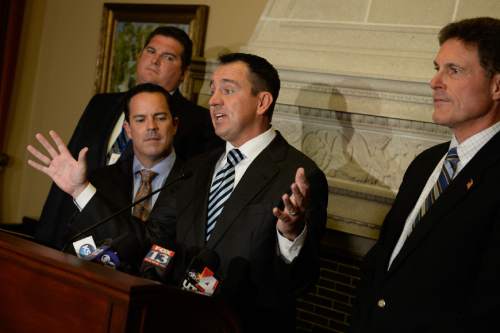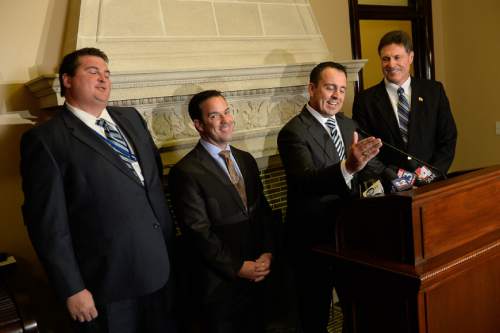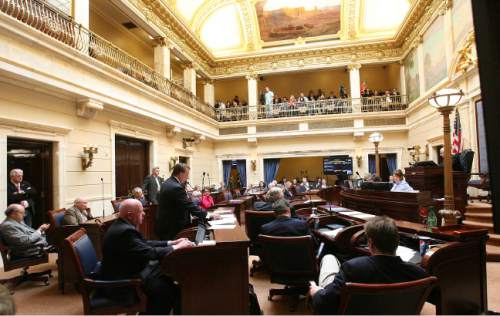This is an archived article that was published on sltrib.com in 2015, and information in the article may be outdated. It is provided only for personal research purposes and may not be reprinted.
Utah seems to be on a roll — or not.
The Beehive State is receiving worse grades than I got in high school. And that is hard to do.
First, Utah received a D-minus from the Center for Public Integrity and Global Integrity. The grade was based on several categories, with Utah receiving failing grades in political finance laws, lobbying disclosure and ethics enforcement.
"One consistent problem is that Utah does not require detailed financial disclosures for the state's top elected officials, legislators, judges, career-service employees and their family members," wrote Brigham Young University journalism professor Joel Campbell, who conducted the study.
He also noted that the Republican-dominated Utah Legislature makes too many important decisions behind closed doors.
In another just-released study, the personal-finance website WalletHub ranked Utah 37th in the percentage of its population covered by health insurance and 47th in the number of children with such protection.
The study found that 12.5 percent of Utahns are uninsured and 9.9 percent of the children lack coverage.
Those with the lowest uninsured populations were Massachusetts, 3.28 percent; Vermont, 4.95 percent; Hawaii, 5.27 percent; District of Columbia, 5.28 percent; and Minnesota, 5.88 percent.
Those with the highest uninsured rates were Oklahoma, 15.36 percent; Georgia, 15.83 percent; Florida, 16.57 percent; Alaska, 17.21 percent; and Texas, 19.06 percent.
In another study, this one by the Institute for Justice, Utah scored a D-minus for its asset-forfeiture laws.
The report, "Policing for Profit: The Abuse of Civil Asset Forfeiture," found that Utah is among the worst states in preventing abuse from police agencies that seize assets from suspects without charging them.
The study found the Beehive State received $10 million in proceeds from asset seizures from 2009 to 2014. It reported that Utah offers limited property-rights protections while giving law enforcement a strong financial incentive to take property, allowing those agencies to keep 100 percent of the proceeds.
"Utah's civil-forfeiture laws also suffer from a troubling lack of transparency," the report said. "Law enforcement agencies are not required to publicly report their forfeitures, only to maintain an inventory of seized and forfeited property."
I wrote in 2001 about a Salt Lake County sheriff's deputy who seized $2,340 from a suspect's wallet, saying it smelled like marijuana. He gave the man no receipt and didn't report the seized money until the suspect's attorney raised questions about it and an internal-affairs complaint was lodged.
Another column I wrote, in 1994, noted that the then-Emery County attorney, who previously had a defense practice, pocketed $10,000 that was meant for his client in a settlement agreement with the Justice Department after that client's money had been seized. The attorney was sentenced to probation for that indiscretion.







